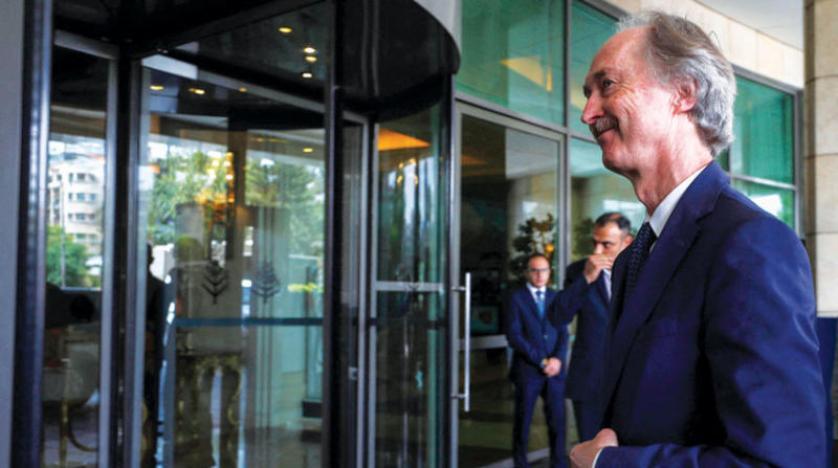The eighth round of the Syrian Constitutional Committee meetings, chaired by the United Nations Special Representative for Syria, Geir Pedersen, kicked off on Monday in Geneva, Switzerland.
The meetings are held in the participation of members of the “Small Group” responsible for the writing of the constitution, consisting of 15 representatives each from the Bashar Assad regime, nongovernmental organizations (NGOs) and the Syrian opposition.
Throughout this week, the parties will discuss four principles: Unilateral coercive measures from a constitutional standpoint, maintaining and strengthening State institutions, the supremacy of the Constitution and the position of international treaties, and transitional Justice.
Read Also: Pedersen Reveals Agenda Of Syrian Constitutional Committee’s 8th Round
The co-Chairs of both the government and the opposition agreed on those principles. They both held talks with Pedersen last Sunday.
According to the meetings’ schedule, one day will be spent on each principle.
On Tuesday, the UN envoy is scheduled to brief the Security Council member states on the outcome of the eighth round of the Syrian Constitutional talks during a closed session on the situation in Syria.
The previous seven UN-led constitutional negotiations have not achieved significant progress due to procrastination on the Syrian regime’s part.
On March 22nd, Pedersen had hoped to see the committee move substantively forward on its mandate to prepare and draft for popular approval of constitutional reform during the talks in Geneva.
But he said the co-chairs had, on the last day of talks, reached an understanding on a better mechanism to find common ground.
The UN envoy had also told reporters that Syria remains one of the gravest crises in the world and there is a clear need for progress towards a political solution.
The Syrian Constitutional Committee was created in September 2019 and was first convened a month later.
The tentative negotiations are aimed at rewriting the war-torn country’s constitution, amid hopes it could pave the way toward a broader political process.
This article was edited by The Syrian Observer. The Syrian Observer has not verified the content of this story. Responsibility for the information and views set out in this article lies entirely with the author.


